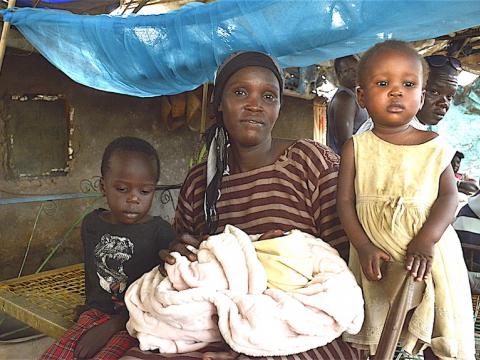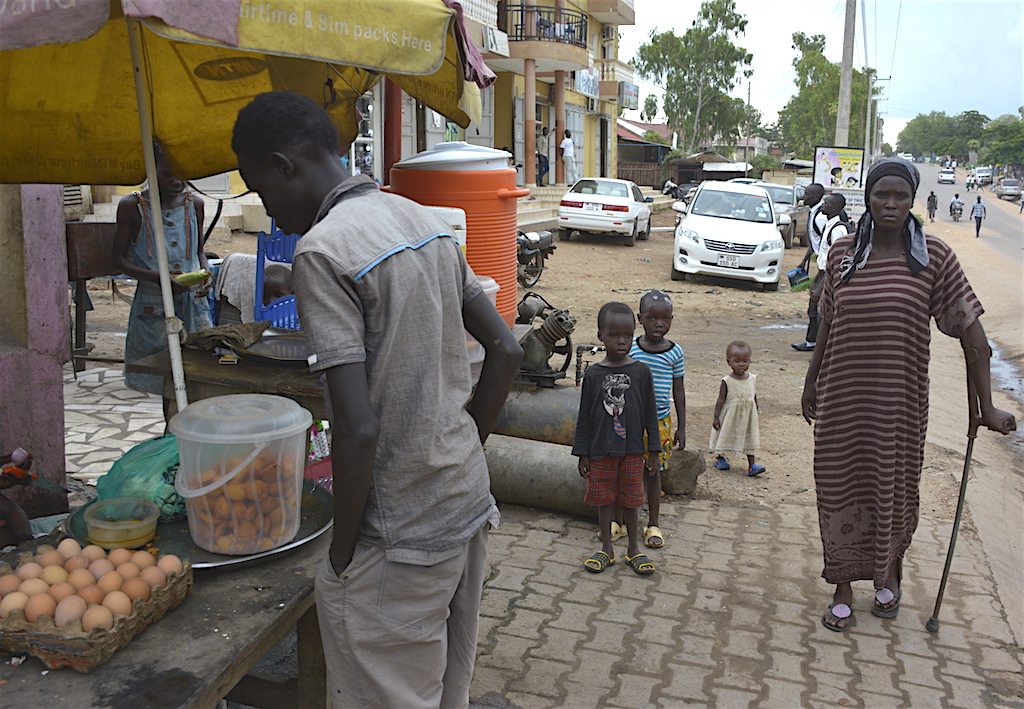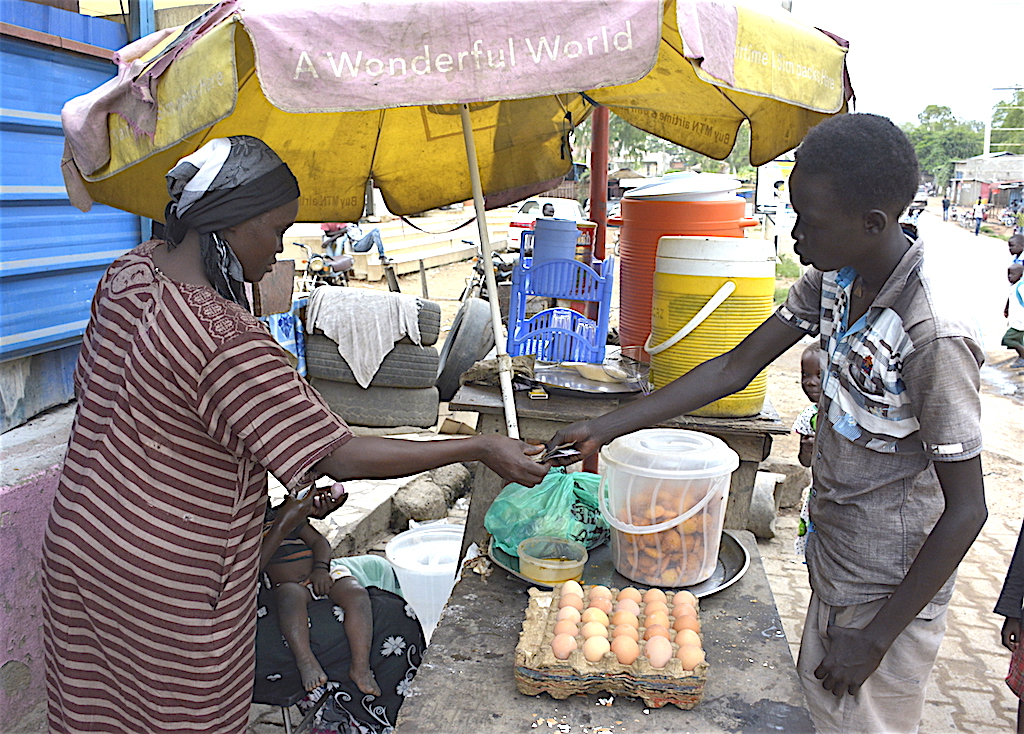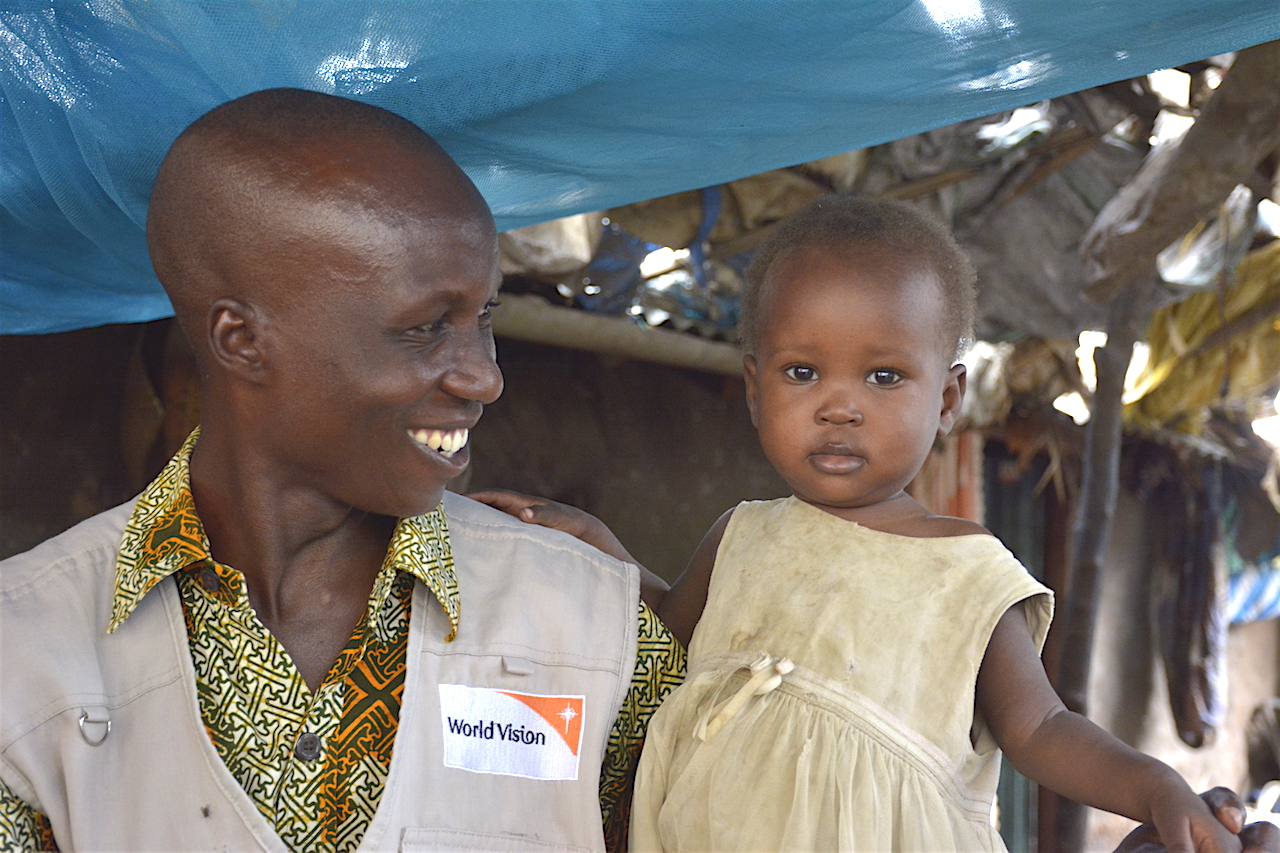Rising from the stigma: Couple with disability become entrepreneurs through cash assistance

By Lisi Emmanuel Alex, Communications Officer
“We are both disabled and we were wondering how we would raise up children without any support, but thank God, World Vision came to our rescue. My husband is now a student at a technical school and I have established my own business. All these were made possible through the money from World Vision’s cash assistance program,” Lillian shares.
Lillian, 29, is a mother of two girls and a boy. She had to face the difficulties experienced by the people with disabilities from her childhood. To add to her challenges, she lost her father while she was still young. The burden to raise Lillian and her siblings had to solely rest on her mother.
She decided to choose a disabled husband so that she will not suffer the stigma confronted by many people with disability in South Sudan. “If a disabled person marries an abled person, the relatives will oppose the decision.” Lilian explains, “You will be told you married the wrong person. I was approached by able men but I rejected their proposals until I met my husband Sebit.”
Lillian's shop in Juba. She has proven to everyone that one's physical condition is not a deterrence to one's pursuit of a better future.
She refused to accept how people view her condition negatively. Lillian shares, “When our child gets sick, we always take the baby to the hospital together. I want to set an example that even if you are disabled and you truly love each other, you can live a happy life despite what other people will think.”
When the conflict flared up again in 2016, life became extremely hard for Lillian and Sebit. Both of them have paralyzed legs making it a harder challenge to find food and the family’s basic needs. They were both unemployed. Lilian said they sometimes slept hungry because they could not afford to buy food that had become more expensive.
Sometime on November 2016, World Vision with support from WFP started implementing the urban conditional cash transfer program aimed at assisting the most vulnerable households in Juba to meet their food and other household needs. As a condition to receiving the assistance, the beneficiaries were required to join training sessions in various modules of home gardening, nutrition, business skills and entrepreneurship, protection and hygiene promotion.
Selling has been her passion. When World Vision provided the opportunity, it was the one she really wanted to do using the assistance she received.
“World Vision, in partnership with the World Food Programme (WFP) asists the most vulnerable households who are food insecure with conditional cash transfers. This support enables them to meet their immediate food needs while learning skills such as managing small businesses to make them self-reliant long after the project is over”, says Gift Sibanda, World Vision’s Juba Program Manager.
In the project’s phase one supporting 42,000 people, a total of 63 people with disability in Buluk Center were trained. The phase two of the project covered 84,000 people and included 350 people with disabilities.
“We are supporting the people living with disabilities in our projects because they are the most vulnerable and many of them have families and children to take care. Giving them skills will encourage them to work instead of losing hope and only survive by begging on the street", says Simanga Ndebele, the Urban Cash Project Manager.
He added that most to the beneficiaries with disabilities have established different kind of businesses in Juba such as tea place, selling vegetables, charcoals and many others. After finishing World Vision’s training, Sebit used part of his money to enroll to Lologo Technical School and is expected to finish on September this year. “He said he is studying simple mechanic so that he can set up a garage for repairing cars and motorbikes,” explains Lillian.
“Out of all the courses, I was interested in improving my business skills because I had a business but I was struggling to make it grow”, she says, adding that her second choice was home gardening. She said because of what she learned, when the rainy season started, she has planted various vegetables and no longer buys from the market as she used to do.
Zawa, 2 years, old, with World Vision's field monitor Robert Boyong.
“We are growing enough vegetables for domestic consumption. If I were to have enough piece of land, I would plan to cultivate enough for business”, she happily shares. “I am very thankful to World Vision because with the skills and the money they gave me, I am able to start my business selling drinking water and now added local juice, bread and, boiled eggs.”
Lillian is now able to send her firstborn Peter, 4 years old, to nursery school. Her second born Zawa, 2, will join baby class next year. “My hope is for my children to grow and become responsible children. I want them to study and will be the one to support us someday. I also pray for an end to the current crisis in South Sudan so their generation will no longer suffer”, Lillian concludes.


